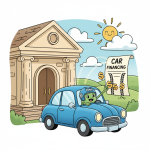Are quantitative finance interviews intimidating? You’re not alone. Whether you’re a young professional, student, or entrepreneur aiming for quant roles, nerves and uncertainty about what to expect can hold you back. But here’s the good news: preparing with the right strategy can boost your confidence and maximize your chances of success. This practical guide to quantitative finance interviews for 2026 covers key topics, commonly asked questions, effective preparation tactics, and the latest industry trends that recruiters are focusing on.
What Are Quantitative Finance Interviews?
Quantitative finance interviews test your skills in math, statistics, programming, and financial models. TheyAssess how you apply analytical thinking to real-world finance problems. These interviews combine technical questions, brainteasers, logic puzzles, and case studies — plus discussions to understand how you think on your feet.
Core Topics to Master for Quantitative Finance Interviews
Mathematics and Statistics
Probability theory and distributions
Stochastic calculus basics
Regression analysis and forecasting
Numerical methods like Monte Carlo simulations
Programming Skills
Coding in Python, C++, or R
Data manipulation and analysis
Algorithmic trading basics
Finance and Market Concepts
Derivatives pricing (e.g., Black-Scholes model)
Risk measures and portfolio optimization
Market microstructure and trading strategies
Logic and Brain Teasers
Pattern recognition
Probability puzzles
Mental math exercises
Common Interview Questions and Example Answers
Probability and Statistics
Q: How do you calculate the expected value of a random variable?
A: Multiply each possible outcome by its probability, then sum all these products.
Financial Modeling
Q: How would you price a European call option?
A: Use the Black-Scholes formula, incorporating stock price, strike price, volatility, risk-free rate, and time to expiration.
Programming
Q: Write a function to compute the moving average of a time series.
A: Explain your approach step-by-step or provide clean code in Python or relevant language.
Brain Teasers
Q: With a three-cup jug and a five-cup jug, how do you measure out one cup of water?
A: Show the sequence of filling and transferring water to achieve the goal.
Effective Interview Preparation Strategies
Build a strong foundation in math and finance fundamentals.
Practice quantitative problems daily, including puzzles and programming challenges.
Use reputable resources and books, like “A Practical Guide to Quantitative Finance Interviews” by Xinfeng Zhou and “Quant Job Interview Questions and Answers” by Mark Joshi.
Participate in mock interviews and connect with professionals to gain insights.
Stay updated on financial markets and trends to demonstrate industry awareness.
Current Trends in Quant Finance Interviews (2026)
Increasing focus on machine learning and data science applications.
Greater emphasis on real-world trading scenarios and risk management.
Growth of remote and virtual interviews with coding challenges integrated.
Hiring across diverse industries: fintech startups, energy, climate risk analytics, and even tech giants.
Answering Behavioral and Fit Questions
Employers also seek candidates who communicate well and fit team culture. Prepare to answer:
Why quant finance?
Describe a challenging quantitative problem you solved.
How do you stay motivated during complex projects?
FAQs About Quantitative Finance Interviews
1. How technical are quant finance interviews?
They balance technical math, coding, and finance knowledge with problem-solving and reasoning skills.
2. Do I need a PhD to succeed?
No, strong analytical skills and preparation matter more than academic titles.
3. Which programming language is preferred?
Python is common, but some roles require C++ or R proficiency.
4. How long does preparation usually take?
Many candidates spend 3–6 months practicing depending on background.
5. Are there any free resources for interview prep?
Yes, websites like Brilliant.org, QuantNet forums, and Reddit’s quant communities offer free materials.
Conclusion: Ace Your Quantitative Finance Interview in 2026
The world of quantitative finance offers exciting and lucrative career opportunities. With careful preparation focusing on math, programming, financial concepts, and problem-solving, you can confidently tackle interviews in 2026. Use this guide’s strategies, practice regularly, stay informed about industry trends, and approach interviews with curiosity and a growth mindset. Your next quant role awaits!
Call to Action:
Start your preparation today by exploring key topics, practicing sample problems, and joining quant finance communities. Sharpen your skills and transform your quant interview dreams into reality!








